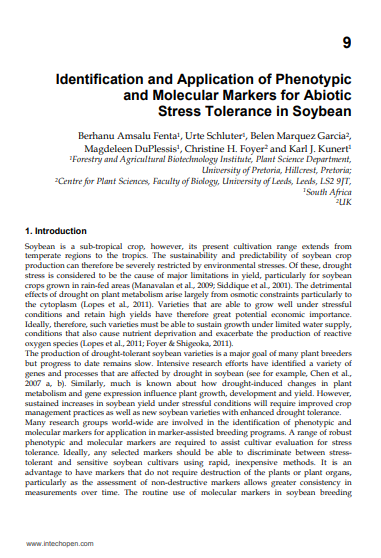Identification and application of phenotypic and molecular markers for abiotic stress tolerance in soybean
Summary
Soybean is a sub-tropical crop. However, its present cultivation range extends from temperate regions to the tropics. The sustainability and predictability of soybean crop production can therefore be severely restricted by environmental stresses. Of these, drought stress is considered to be the cause of major limitations in yield, particularly for soybean crops grown in rain-fed areas. The detrimental effects of drought on plant metabolism arise largely from osmotic constraints, particularly to the cytoplasm. Varieties that are able to grow well under stressful conditions and retain high yields have great potential economic importance. Ideally, therefore, such varieties must be able to sustain growth under limited water supply, conditions that also cause nutrient deprivation and exacerbate the production of reactive oxygen species. This article identifies and applies phenotypic and molecular markers for abiotic stress tolerance in soybean.
Open resource Download resource Access resource on external site

